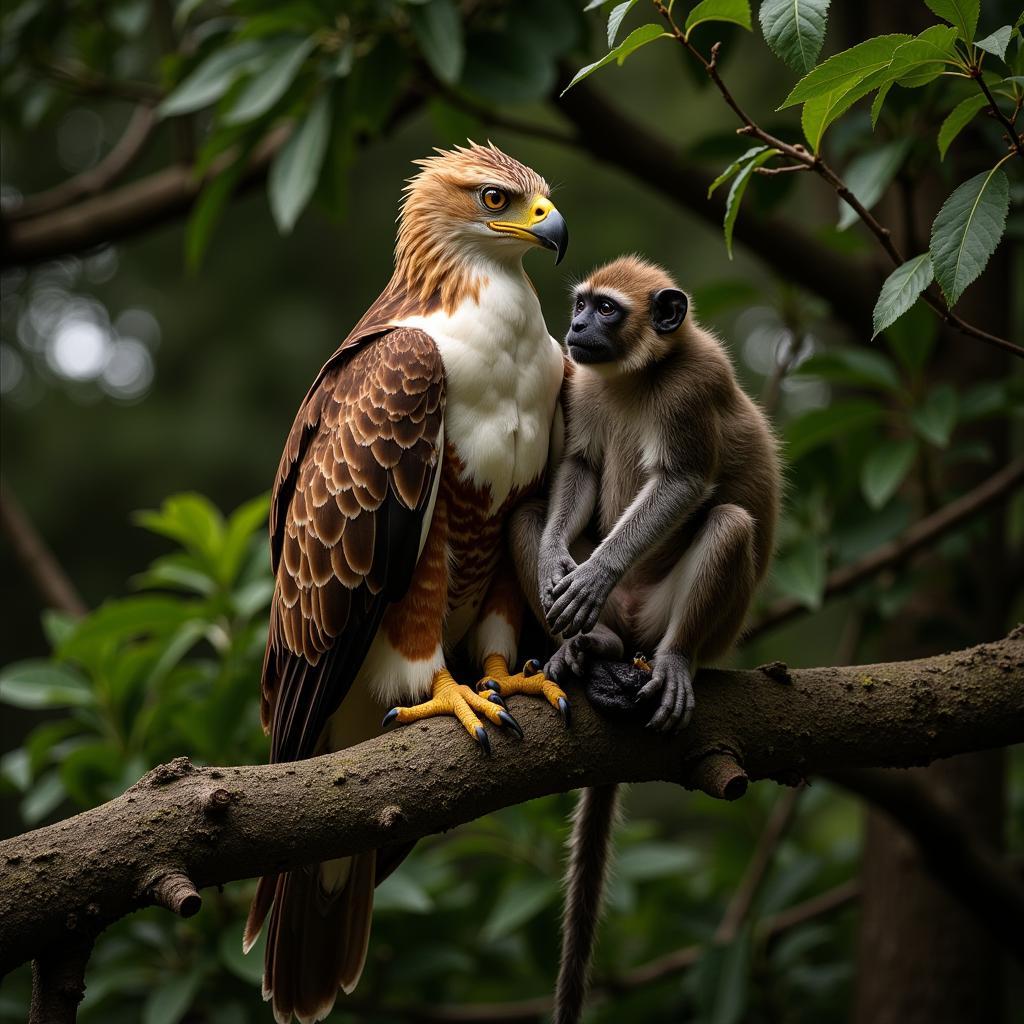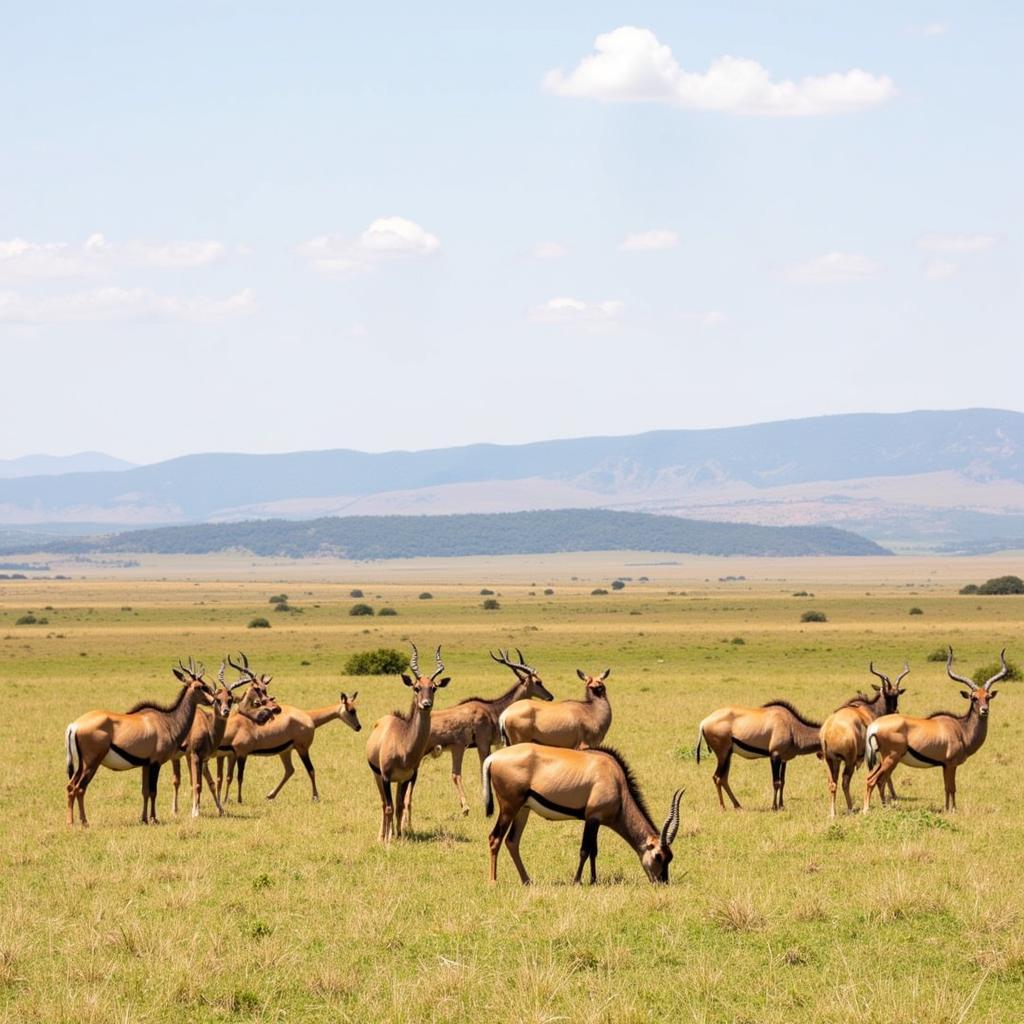African Attack Dog: Myths, Realities, and Responsible Ownership
African Attack Dog is a term often laden with misconceptions. While some African breeds are known for their protective instincts, labeling them solely as “attack dogs” ignores their diverse traits and the importance of responsible ownership. Understanding the nuances of these breeds, their history, and their potential requires a deeper dive beyond the often-sensationalized narratives.
The term “African attack dog” often brings to mind images of fierce protectors and intimidating guardians. But the reality is more complex. While certain African breeds possess natural guarding instincts, it’s crucial to recognize that responsible breeding, training, and socialization play a vital role in shaping a dog’s behavior. This article explores the truth behind the “African attack dog” label, examining popular breeds, their historical context, and the responsibilities that come with owning these powerful animals. It’s time to separate fact from fiction and understand these dogs for their true capabilities and needs. The welfare of these animals depends on informed owners and a public understanding that goes beyond stereotypes. Check out this exciting article about the African wild dog.
Unveiling the Breeds: Beyond the “Attack Dog” Label
Several African dog breeds are often associated with the term “attack dog,” including the Boerboel, Rhodesian Ridgeback, and Basenji. Each breed has its unique history and characteristics. For instance, the Boerboel, originating in South Africa, was historically used for guarding livestock and property. Their imposing size and protective instincts contributed to their reputation. The Rhodesian Ridgeback, known for its distinctive ridge of hair along its back, was bred to hunt lions in Rhodesia (now Zimbabwe). Their courage and athleticism are defining traits. The Basenji, a smaller breed, is known for its unique yodeling vocalization and its history as a hunting dog in Central Africa.
While these breeds may share a continental origin, their temperaments and purposes vary greatly. It’s important to remember that individual dogs within each breed can exhibit a wide range of personalities. Generalizations about breed-specific aggression are often inaccurate and harmful. Responsible breeding practices that prioritize temperament and health are crucial in ensuring well-adjusted dogs.
The Role of Training and Socialization
Regardless of breed, proper training and socialization are paramount in shaping a dog’s behavior. Early socialization exposes puppies to various people, animals, and environments, helping them develop into well-adjusted adults. Consistent training, using positive reinforcement methods, builds a strong bond between dog and owner and establishes clear communication. This is especially important for breeds with strong guarding instincts, like the Boerboel, to ensure they understand appropriate responses to different situations. A well-trained African dog can be a loving companion and a loyal protector, not an aggressive threat. More details can be found in this article on african boerboel attack.
Why is early socialization important for African dog breeds?
Early socialization is crucial for African dog breeds, especially those with protective instincts, to ensure they develop into well-adjusted adults who can differentiate between friend and foe.
What training methods are most effective for African dog breeds?
Positive reinforcement methods, focusing on rewarding desired behaviors, are generally considered the most effective training approach for African dog breeds, fostering a strong bond and clear communication with their owners.
Historical Context and Cultural Significance
Understanding the historical roles of these breeds sheds light on their characteristics and behaviors. Many African dogs were traditionally used for hunting, guarding livestock, or protecting their communities. These roles required them to be alert, courageous, and protective. It’s essential to consider this historical context when evaluating their behavior today.
Responsible Ownership: A Key Factor
Owning an African dog breed, or any dog for that matter, is a significant responsibility. It requires a commitment to providing proper care, training, and socialization. Owners should be prepared to invest time, effort, and resources into ensuring their dog’s physical and emotional well-being. This includes providing a safe and stimulating environment, a balanced diet, regular veterinary care, and ongoing training. Responsible ownership is the cornerstone of preventing any dog from becoming a danger to itself or others. Read more on the African deer greater kudu.
“Owning a powerful breed requires a deep understanding of the dog’s needs and a commitment to responsible training and socialization,” says Dr. Amani Jabari, a veterinarian specializing in canine behavior based in Nairobi, Kenya. “It’s about nurturing a balanced and well-adjusted companion, not creating an aggressive animal.”
Conclusion: Moving Beyond the Label
The term “African attack dog” is a simplistic and often misleading label. Understanding the individual breeds, their historical context, and the crucial role of responsible ownership is essential in appreciating these dogs for their true capabilities and needs. By focusing on responsible breeding, training, and socialization, we can ensure that these powerful animals become well-adjusted companions and valued members of our communities. Let’s move beyond the stereotypes and embrace a more nuanced perspective on these fascinating breeds. Remember the thrilling 2014 World Cup African teams competition. Interested in the African Cup of Nations 2017 matches?
“The key is education and responsible ownership,” adds Dr. Jabari. “By understanding these dogs and providing them with the care they need, we can dispel the myths and appreciate their true potential.”
FAQ
- Are all African dog breeds aggressive? No, not all African dog breeds are inherently aggressive. Their behavior is largely influenced by genetics, upbringing, and training.
- Are African dogs suitable for first-time owners? Some African breeds may require experienced owners due to their size, strength, and protective instincts.
- How much exercise does an African dog need? African dogs typically require a significant amount of exercise to stay healthy and happy.
- Are African dogs good with children? With proper socialization and training, some African dogs can be good with children, but supervision is always essential.
- What are the legal implications of owning an African dog breed? Regulations regarding specific breeds vary by location, so it’s important to research local laws.
- What is the lifespan of an African dog? The lifespan of African dog breeds varies depending on the breed and individual dog, but typically ranges from 10-14 years.
- How can I find a reputable breeder of African dogs? Researching breeders carefully, asking for references, and visiting the breeding facility are important steps in finding a reputable breeder.
Common Scenarios and Questions:
-
Scenario: A family with young children is considering adopting an African Boerboel.
-
Question: Is this breed a good choice for a family with young children?
-
Scenario: Someone living in an apartment is considering getting a Rhodesian Ridgeback.
-
Question: Is an apartment a suitable environment for this active breed?
-
Scenario: A person is looking for a guard dog and is considering an African breed.
-
Question: What are the important factors to consider when choosing a guard dog?
Further Exploration:
You might also be interested in learning more about:
- Training techniques for African dog breeds
- Breed-specific health concerns
- The history and origins of African dog breeds
When you need assistance, please contact us at Phone Number: +255768904061, Email: kaka.mag@gmail.com, or visit our address: Mbarali DC Mawindi, Kangaga, Tanzania. We have a 24/7 customer service team.


